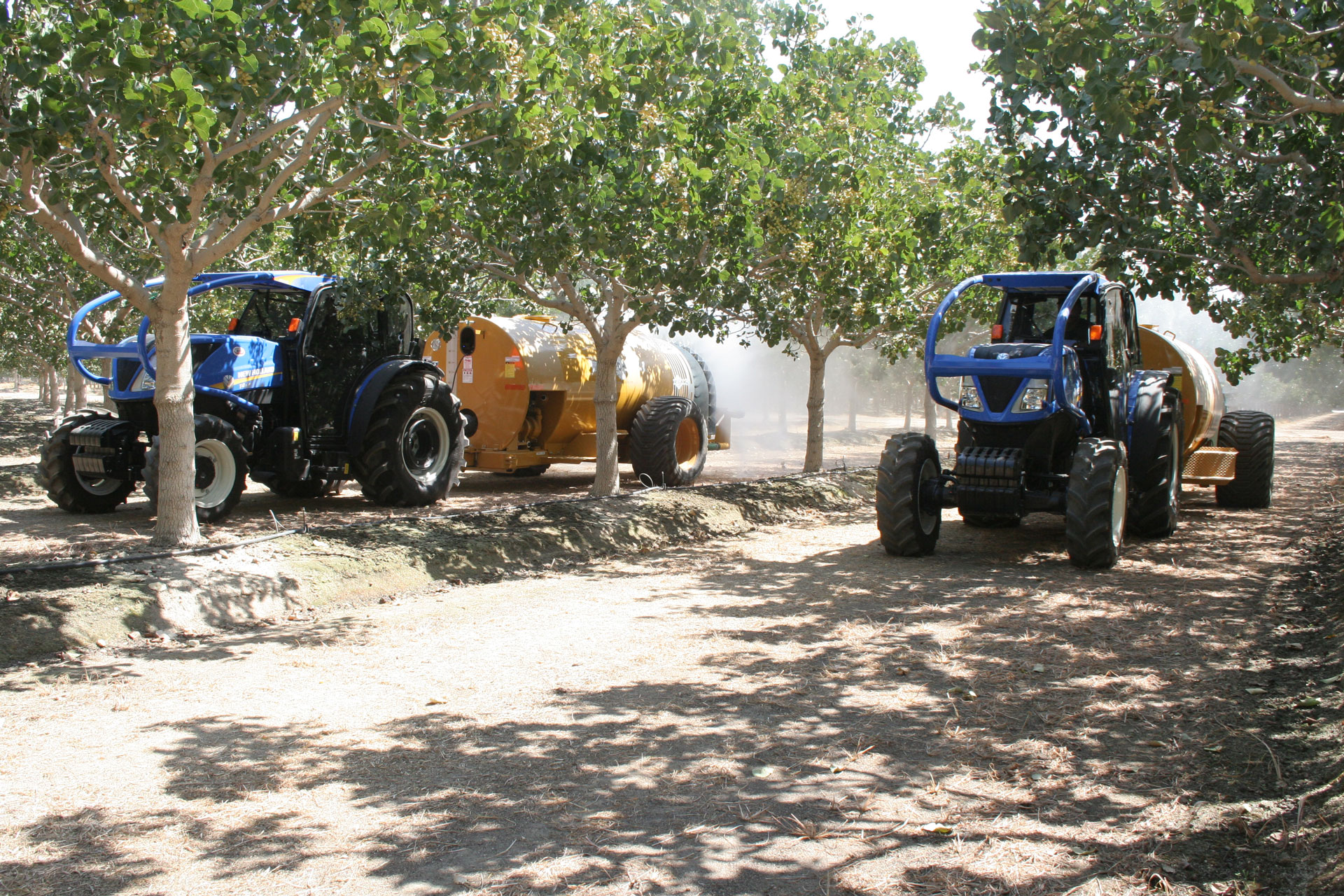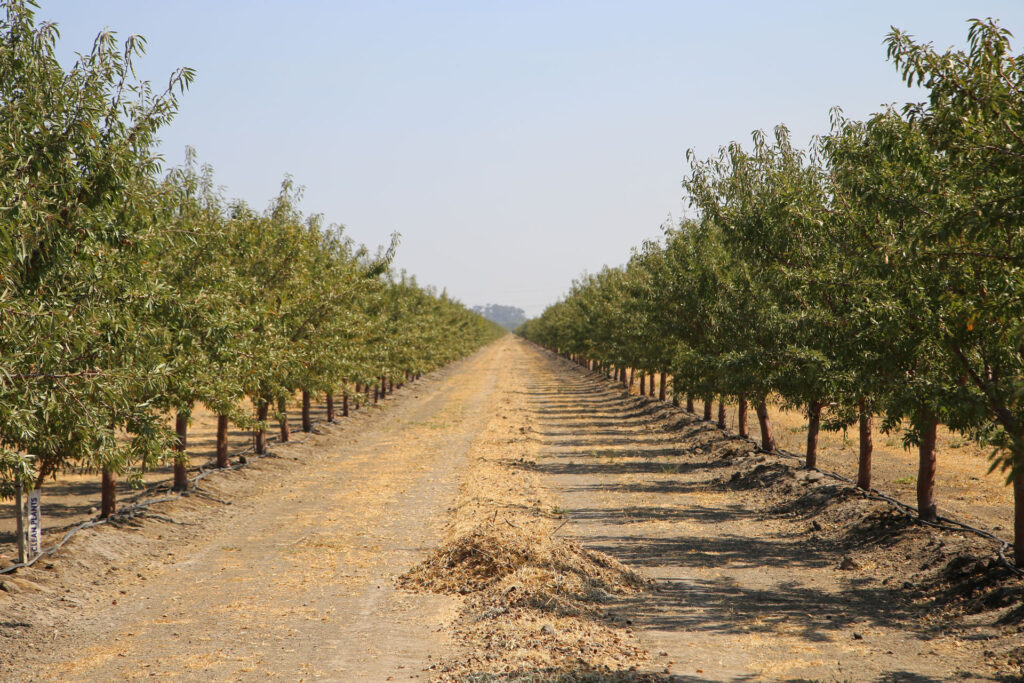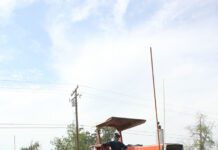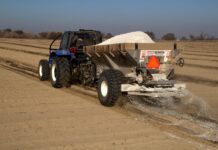
The 2021 legislative session was an interesting one, still subject to COVID-19 restrictions limiting access to the Capitol, but bolstered by a big surplus budget. All in all, things could have been far worse. The following is a brief summary on the bills we felt were most important to the tree nut industry during this year’s session.
AB 73 (R. Rivas)
Current law requires the State Department of Public Health and the Office of Emergency Services to establish a personal protective equipment (PPE) stockpile, and requires the department to establish guidelines for the procurement, management and distribution of PPE, taking into account, among other things, the amount of each type of PPE that would be required for all health care workers and essential workers as defined in the state during a 90-day pandemic or other health emergency. This bill would specifically include wildfire smoke events among health emergencies for these purposes and would include agricultural workers in the definition of essential workers. The bill passed out of the Assembly 78-0, passed out of the Senate 37-0 and was signed by the Governor on Sept. 27.
AB 284 (R. Rivas)
This bill would require the State Air Resources Board, as part of the next scoping plan update and no later than Jan. 1, 2023, to identify a 2045 climate goal with interim milestones for the state’s natural and working lands, and to integrate into the scoping plan update recommendations developed by the Natural Resources Agency and the Department of Food and Agriculture regarding practices, policy and financial incentives, market needs and potential reductions in barriers that would help achieve the 2045 climate goal among other recommendations. The bill was moved to the Inactive File and may be acted upon in January 2022.
AB 377 (R. Rivas)
This bill would require, by January 1, 2023, the State Water Resources Control Board and regional boards to prioritize enforcement of all water quality standard violations that are causing or contributing to an exceedance of a water quality standard in surface water of the state. The bill would require the state board and regional boards, by January 1, 2025, to evaluate impaired state surface waters and report to the Legislature a plan to bring all water segments into attainment by January 1, 2050. The bill was held on the Assembly Suspense File and may be acted upon January 2022.
AB 567 (Bauer-Kahan)
Current law generally regulates pesticide use by the Department of Pesticide Regulation and requires the Director of Pesticide Regulation to endeavor to eliminate from use any pesticide that endangers the agricultural or nonagricultural environment. A violation of those provisions and regulations adopted pursuant to those provisions is generally a misdemeanor. Current law requires the department on or before July 1, 2018 to issue a determination with respect to its reevaluation of neonicotinoids and to adopt control measures necessary to protect pollinator health within two years, as specified. This bill would prohibit the use of a neonicotinoid on a seed, as specified. The bill was made into a two-year bill and may be acted upon in January 2022.
AB 616 (Stone)
This was the big bill of the session. Current law requires the Agricultural Labor Relations Board to certify the results of an election conducted by secret ballot of employees in a collective bargaining unit to designate a collective bargaining representative, unless the board determines there are sufficient grounds to refuse to do so. Current law further provides that if the board refuses to certify an election because of employer misconduct that would render slight the chances of a new election reflecting the free and fair choice of employees, the labor organization shall be certified as the bargaining representative for the bargaining unit. This bill would refer to the secret ballot election as a polling place election. The bill passed out of the Assembly 50-17, passed out of the Senate 24-11, but was vetoed by the Governor on Sept. 22, 2021.
AB 1395 (Muratsuchi)
The California Global Warming Solutions Act of 2006 requires the State Air Resources Board to prepare and approve a scoping plan for achieving the maximum technologically feasible and cost-effective reductions in greenhouse gas emissions and to update the scoping plan at least once every five years. This bill, the California Climate Crisis Act, would declare the policy of the state both to achieve net zero greenhouse gas emissions as soon as possible, but no later than 2045, and achieve and maintain net negative greenhouse gas emissions thereafter, and to ensure that by 2045, statewide anthropogenic greenhouse gas emissions are reduced to at least 90% below the 1990 levels. The bill passed out of the Assembly 42-21, but failed passage in the Senate 14-12. Reconsideration was granted and may be acted upon in January 2022.
SB 95 (Skinner)
This bill would provide for COVID-19 supplemental paid sick leave for covered employees, as defined, who are unable to work or telework due to certain reasons related to COVID-19, including that the employee has been advised by a health care provider to self-quarantine due to concerns related to COVID-19. The bill would entitle a covered employee to 80 hours of COVID-19 supplemental paid sick leave if that employee either works full time or was scheduled to work, on average, at least 40 hours per week for the employer in the two weeks preceding the date the covered employee took COVID-19 supplemental paid sick leave. The bill would provide a different calculation for supplemental paid sick leave for a covered employee who is a firefighter subject to certain work schedule requirements and for a covered employee working fewer or variable hours, as specified. The bill passed out of the Senate 22-2, passed out of the Assembly 57-19 and was signed by the Governor on March 19, 2021.

SB 559 (Hurtado)
This bill would establish the Water Conveyance Restoration Fund in the State Treasury to be administered by the Department of Water Resources in consultation with the State Water Resources Control Board and the Department of Fish and Wildlife. The bill would require all moneys deposited in the fund to be expended, upon appropriation by the Legislature, in support of subsidence repair costs, including environmental planning, permitting, design and construction and necessary road and bridge upgrades required to accommodate capacity improvements. The bill would require the Director of Water Resources to apportion money appropriated from the fund, subject to specified requirements, for the Friant-Kern Canal, Delta-Mendota Canal, San Luis Field Division of the California Aqueduct and San Joaquin Division of the California Aqueduct. The bill was moved to the Inactive File and may be acted upon in January 2022.
Budget Act of 2021
The Legislature passed this year’s budget in stages, and spends $262.5 billion in total state funds, consisting of approximately $196.4 billion from the General Fund, $61.2 billion from special funds, and $4.9 billion from bond funds. Of note, the budget includes:
- $31 million for the Governor’s Climate Catalyst Revolving Loan Fund;
- $65 million to address drought impacts on fish and wildlife (habitat restoration);
- $40 million for Water Resilience Projects;
- $170 million for the FARMER program, plus an additional $42.5 million in Carl Moyer funds directed to agriculture;
- $32 million for methane reduction programs;
- $50 million designated for Land Resource Protection which would include repurposing irrigated ag lands;
- $180 million for SGMA implementation (this is $120 million more than the previous budget); and
- $7 million for CDFA to help farmers transition to organics.
The budget also includes $90 million in General Funds over the next two years for the Department of Pesticide Regulations. These monies are in place of a tiered mill assessment proposed by the Department but rejected by the Legislature. The Department did receive an additional appropriation of $10 million to study different approaches to the mill assessment that help transition the State to safer products.
In a year when the legislation could have been a lot worse, the failed recall attempt did take people’s attention away from some of those critical pieces of legislation, and maybe, just maybe, helped keep some of those bad bills at bay. That’s good for now, but we need to buckle up and be prepared for 2022. It will be a whole new battle!

Roger A. Isom
Roger is President/CEO of the California Cotton Ginners and Growers Association and Western Tree Nut Association. He brings over 30 years of regulatory and legislative advocacy experience, specializing in environmental and safety matters. Roger’s responsibilities include the management of both Associations’ staff and day-to-day operations. Roger is also the President of the Ag Energy Consumers Association (AECA), board member and Past President of the Ag One Foundation at California State University Fresno, and manages the Navel Orangeworm Action Committee (NOWAC).















